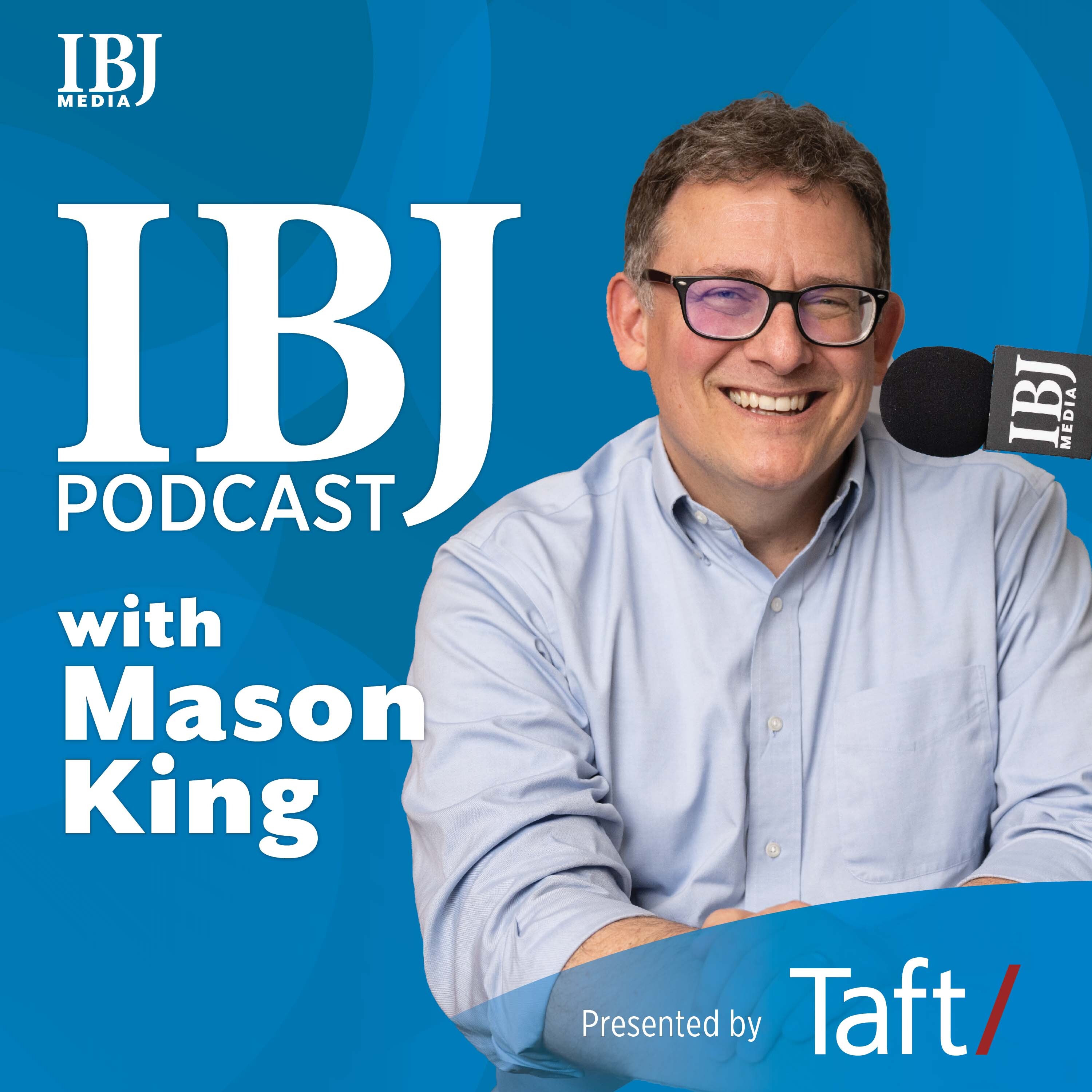Episodes
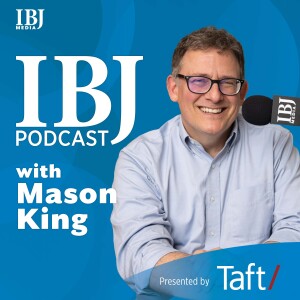
7 days ago
7 days ago
We have moved podcast feeds. Go to IBJPodcasts.com for new episodes of this show.
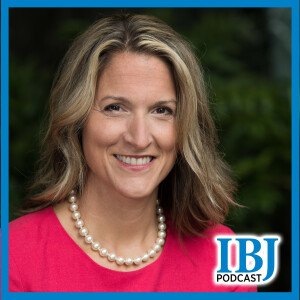
Sunday Apr 20, 2025
UConn champion Kelley Gay uses on-court lessons as corporate VP in Indy
Sunday Apr 20, 2025
Sunday Apr 20, 2025
Comparing company employees to a sports team is a well-worn management trope, but Kelley Gay knows as well as anyone the value of translating the experience of a championship-level athlete to the corporate world. She graduated from one of the most lauded team cultures in the history of college athletics: the University of Connecticut’s women’s basketball program. In 1995, Gay played forward on UConn’s first women’s national championship team. Earlier this month, the UConn women’s program won its 12th national championship, all under coach Geno Auriemma.
Today, Kelley Gay is senior vice president and chief marketing officer of OneAmerica Financial, the largest private company based in Indianapolis. But the lessons she learned from her father, a former NFL lineman, and on the court with UConn are still top of mind. In this week’s edition of the IBJ Podcast, Gay discusses the importance of learning your role in a large organization while understanding how everyone contributes, when to celebrate your successes and when to push your team to accomplishments they might not believe they can achieve. She also explains her role on the local host committee for July’s WNBA All-Star Weekend in Indianapolis—essentially an all-star team of Indy-area executives comprised largely of women.

Tuesday Apr 15, 2025
Maureen Weber on the importance of early learning, leadership and failure
Tuesday Apr 15, 2025
Tuesday Apr 15, 2025
This week’s IBJ Podcast features a conversation from our Forty Under 40 awards breakfast last week with Maureen Weber, the winner of this year’s Alumni Award.
Maureen was originally a Forty Under 40 honoree in 2010. Back then, she had just finished reorganizing the Indiana Department of Education and had taken a job as director of community outreach and engagement at Clarian Health, now Indiana University Health.
Sixteen years later, Maureen is president and CEO of Early Learning Indiana. She said she took the job because she saw the opportunity to transform the lives of young children, especially vulnerable ones.
IBJ Editor Lesley Weidenbener talked with Maureen on stage about the work Early Learning Indiana is doing today and about leadership and learning from failure.
You can read more about Maureen and see our latest Forty Under 40 class here.
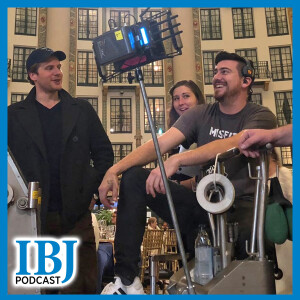
Sunday Apr 06, 2025
Could proposed tax credit upgrade help make Indiana a film and media hub?
Sunday Apr 06, 2025
Sunday Apr 06, 2025
In this era of online entertainment, you could switch to a steaming service this very second and watch one of many classic movies filmed in Indiana. You would be hard-pressed to find many movies and TV shows that recently were filmed in Indiana—even those where the stories are set in Indiana. Other states, including several of our immediate neighbors, have been much more aggressive than Indiana in offering financial incentive to filmmakers, TV producers and commercial creators. In 2022, Gov. Eric Holcomb signed a law that offered state tax credits for certain elements of a production’s budget. But that solution isn’t the best fit for some producers, who can find better deals elsewhere. And not a single project has been approved by the Indiana Economic Development Corp., which administers the tax credit.
New legislation working its way through the Statehouse hopes to make the film and media tax credits more desirable. It would allow producers to sell the tax credits for a percentage of their value. But there are enough limitations to stymie a medium- or large-scale production. IBJ’s Dave Lindquist has been studying the issue and breaks down the new proposal in a story in the latest issue of IBJ. He’s the guest this week on the IBJ Podcast to talk about interstate competition for media projects and why an upcoming movie set in Indianapolis and featuring Al Pacino was instead shot in Louisville. He also asks current Indiana filmmakers whether they believe the new proposal would be valuable.
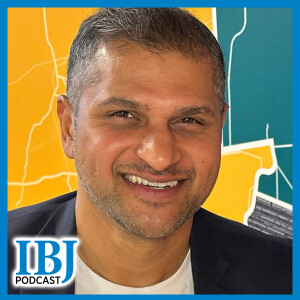
Sunday Mar 30, 2025
Born in Mumbai, local TED expert bringing global sports leaders to Indy
Sunday Mar 30, 2025
Sunday Mar 30, 2025
Neelay Bhatt was born in Mumbai, India, and didn’t move to Indiana until 2006, after he finished a graduate degree in sports administration. But he found a home here because he speaks the language of sports and developed a strong network of local sports executives. In 2023, he founded a consultancy in Carmel that focuses in part on master planning, strategic planning and business planning, which it has been engaged to do for a massive sports and leisure destination in Portugal. Meanwhile, Bhatt has been a key player on the local organizing committees for the 2024 NBA All-Star Weekend in Indianapolis, and 2024 U.S. Olympic Swim Trials at Lucas Oil Stadium.
His latest roles in the local sports community are co-chair and curator of TEDSports Indianapolis, the first-ever TED event to focus exclusively on sports. Taking place Sept. 9-11 in downtown Indy, it’s expected to draw up to 1,000 executives, educators and trendsetters from across the globe for a series of seminars, panels, workshops and curated experiences. There also is a significant networking component, potentially generating new opportunities for the city.
In this week’s edition of the podcast, Bhatt discusses his upbringing in India, how he was influenced by his grandmother who grew up in pre-independence India, how he became involved in the TED talk ecosystem and how he hopes Indianapolis can take advantage of TEDSports.

Sunday Mar 23, 2025
Pete the Planner on the Social Security cliff and potential for benefit cuts
Sunday Mar 23, 2025
Sunday Mar 23, 2025
Since 1940, Social Security has provided a modest amount of money every month to retirees from a fund that collects payroll taxes on those who are still working. But the ratio of people who are employed to people who are retired has shrunk significantly in recent generations. According to the Social Security Administration, the fund will be depleted by 2035, eliminating any reserves, meaning retiree benefits will be paid directly from incoming taxes. That won’t be enough to satisfy all obligations to retirees, and their benefits will drop by an estimated 17%.
Meanwhile, President Donald Trump’s drive to eliminate a huge chunk of the federal work force has sparked anxiety among retirees and the soon-to-be-retired. The announced cuts include a portion of those who work for the Social Security Administration. Trump’s team also wants to close dozens of Social Security field offices while tightening measures for Social Security candidates or recipients to prove their identities. Advocates for retirees say these changes could lead to massive delays for services.
IBJ personal finance columnist Peter Dunn, aka Pete the Planner, is our guest this week on the podcast to provide context and break down the issues that could have a serious impact on the tens of millions of retirees who receive Social Security. And here’s is a quick preview of Pete’s advice: If you’re planning for retirement right now, your best move is to save as if you won’t receive Social Security.
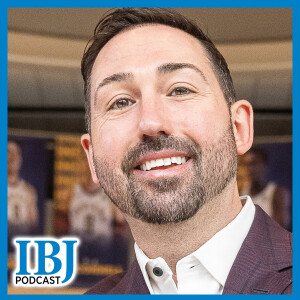
Sunday Mar 16, 2025
Sunday Mar 16, 2025
Joey Graziano was a senior vice president for the NBA with global responsibilities when he began working with Pacers Sports & Entertainment on the 2024 NBA All-Star Weekend in Indianapolis. The way he tells it, Graziano soon became convinced that the Indiana Pacers, Indiana Fever and the city of Indianapolis on the whole presented enormous potential for growth. Six months ago, he left the NBA and became the executive vice president of strategy and new business ventures for Pacers Sports & Entertainment. Just to refresh your memory, that’s the company controlled by the Herb Simon family that owns the Pacers and Fever.
Last month, PS&E announced a deal with Hartbeat, the production company founded by comedian and actor Kevin Hart, to produce live entertainment in conjunction with key dates on the schedules of the Pacers and Fever, as well as big events downtown. The first Hartbeat production, a music and comedy festival, will take place during WNBA All-Star Weekend in July in Indianapolis. In this week’s edition of the IBJ Podcast, Graziano discusses preparations for the All-Star Weekend, the deal with Hartbeat, how Caitlin Clark and the rest of the Fever can make big strides in her second season, and how PS&E views several new projects by Gainbridge Fieldhouse as part of an overarching strategy. He also talks about growing up as the son of a New York City fireman, who instilled the value of offering your help where its most needed.
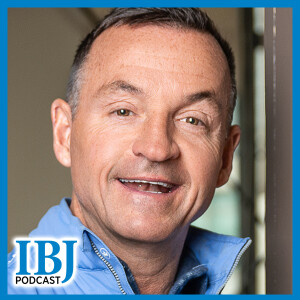
Sunday Mar 09, 2025
Sunday Mar 09, 2025
Scott Lingle grew up in Indianapolis with parents who were always looking for a side hustle and ways to eliminate debt. Their entrepreneurial pursuits included flipping houses—"I lived in 20 houses growing up," Lingle says—and rehabilitating a host of other products for resale. Scott Lingle knew early on that he wanted to be in sales. After a distinguished career in the insurance industry, he took a big entrepreneurial leap. In 2015, he co-founded Remodel Health, which after initial growing pains became one of fasting-growing firms in Indianapolis throughout the early 2020s. It was ranked 13th on IBJ’s list in 2024, with a 123% increase in annual revenue between 2021 and 2023, topping out at nearly $15 million.
Lingle stepped down as CEO several years ago but stayed as board chairman while pursuing other interests and investing opportunities. Among his projects, he co-founded High School Hustle, an initiative to encourage Indianapolis students to start and grow businesses with the guidance of mentors who have done the same. It’s now in its second year and available at nearly 20 high schools. There’s a secondary goal that could be of benefit for the Indianapolis startup community: creating networks of well-established entrepreneurs who fund the students work and the younger business leaders who coach them.
In this week’s edition of the podcast, Lingle shares the lessons he learned about taking chances, building elite teams and embracing the quintessential entrepreneurial challenge of pivoting multiple times. He also lays out the strategy behind High School Hustle and its plans for national expansion.
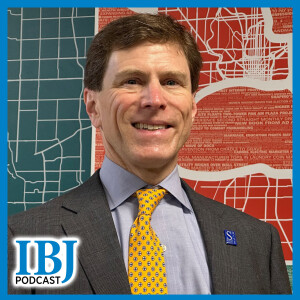
Sunday Mar 02, 2025
Third-gen Indy hotelier on industry ups and downs, $43.5M Ball State project
Sunday Mar 02, 2025
Sunday Mar 02, 2025
Based in Indianapolis, the Schahet family has been managing and developing hotels since the 1960s. The family firm Schahet Hotels currently has nine properties in its portfolio, mostly in central Indiana, with a 10th hotel under construction in Muncie and an 11th in the final planning stages. There’s still room in the lodging industry for mom-and-pop hoteliers—although in this case it was father and son—who can amass significant holdings in particular niches and geographic areas. Family operators like the Schahets are an integral part of the Indy area’s hospitality fabric.
It is NOT an industry for the meek. Ask Greg Schahet, a third-generation Schahet hotelier who joined the family firm a few months before 9/11 and has since helped the company navigate the Great Recession, the pandemic and the current economic crunch from inflation and interest rates. As president and chief financial officer, he’s guiding development of the downtown Muncie project called The Cantio, a $43.5 million boutique-style hotel that represents a departure for the firm.
In this week’s edition of the podcast, Greg Schahet shares financial war stories from moments in the last three decades when it seemed like the industry had turned upside-down. He also talks strategy, including explaining why Schahet has such a high concentration of hotels near Indianapolis International Airport and why it went outside its comfort zone with the high-profile Cantio.
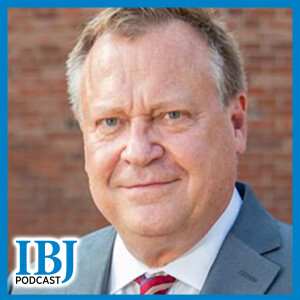
Sunday Feb 23, 2025
Sunday Feb 23, 2025
Indiana has been a national leader in historic preservation for decades. Hoosiers have a strong record for studying, cataloguing and saving homes, churches, farms, factories, covered bridges, monuments, courthouses, hotels, libraries and even entire commercial districts and neighborhoods deemed to have historic value. Since being founded in 1960, the nonprofit group Indiana Landmarks has promoted and supported historic preservation efforts, often positioned at or near the center of major projects or helping bring the right parties to the table and acting as an adviser. It has 43 full-time employees and nine field offices around Indiana and is considered the largest statewide historic preservation organization in America.
Marsh Davis has worked for Indiana Landmarks for 37 years—the last 19 of which as the group’s president. He is retiring on April 15 but is headed right back into historic preservation as the new owner of a large Victorian home in New Harmony that needs a considerable amount of work. Leading by example has been one of the themes of his tenure. His legacy includes the $24 million restoration of the former Central Avenue Methodist Episcopal Church in Indianapolis. Finished in 2011, it became Lankmarks' statewide headquarters as well as a multi-space events venue in the city’s Old Northside Historic District.
With a handful of weeks left in Davis' tenure, IBJ Podcast host Mason King sat down with the outgoing president to discuss the value of historic preservation and its influence on Indianapolis; the projects that stand out over four decades; the one that got away; and how he hopes his tenure as president will be remembered.

